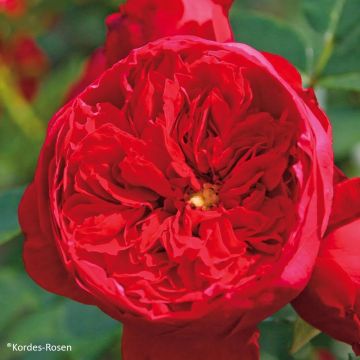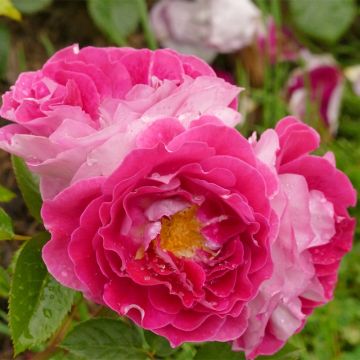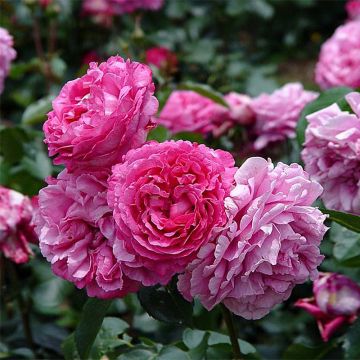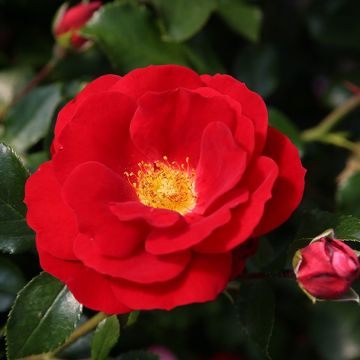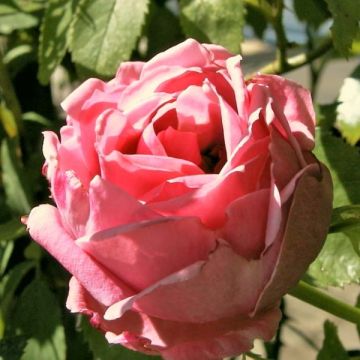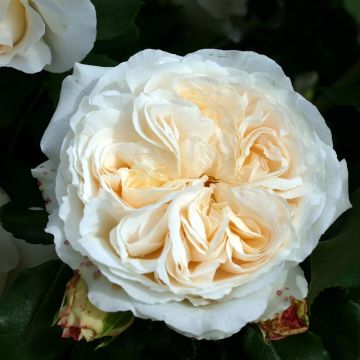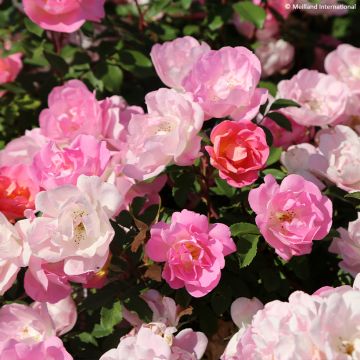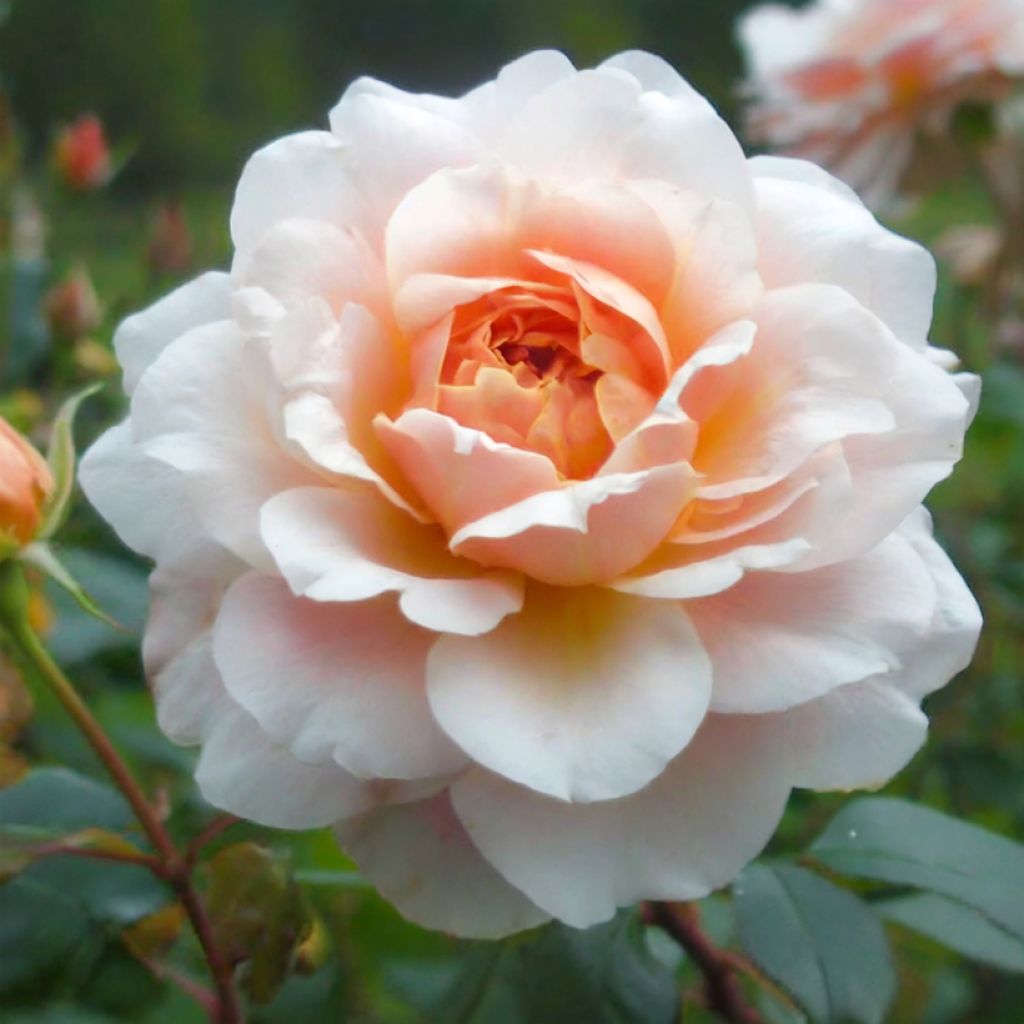

'Perle d'Or' - Old Rose
View more pictures
Hide images
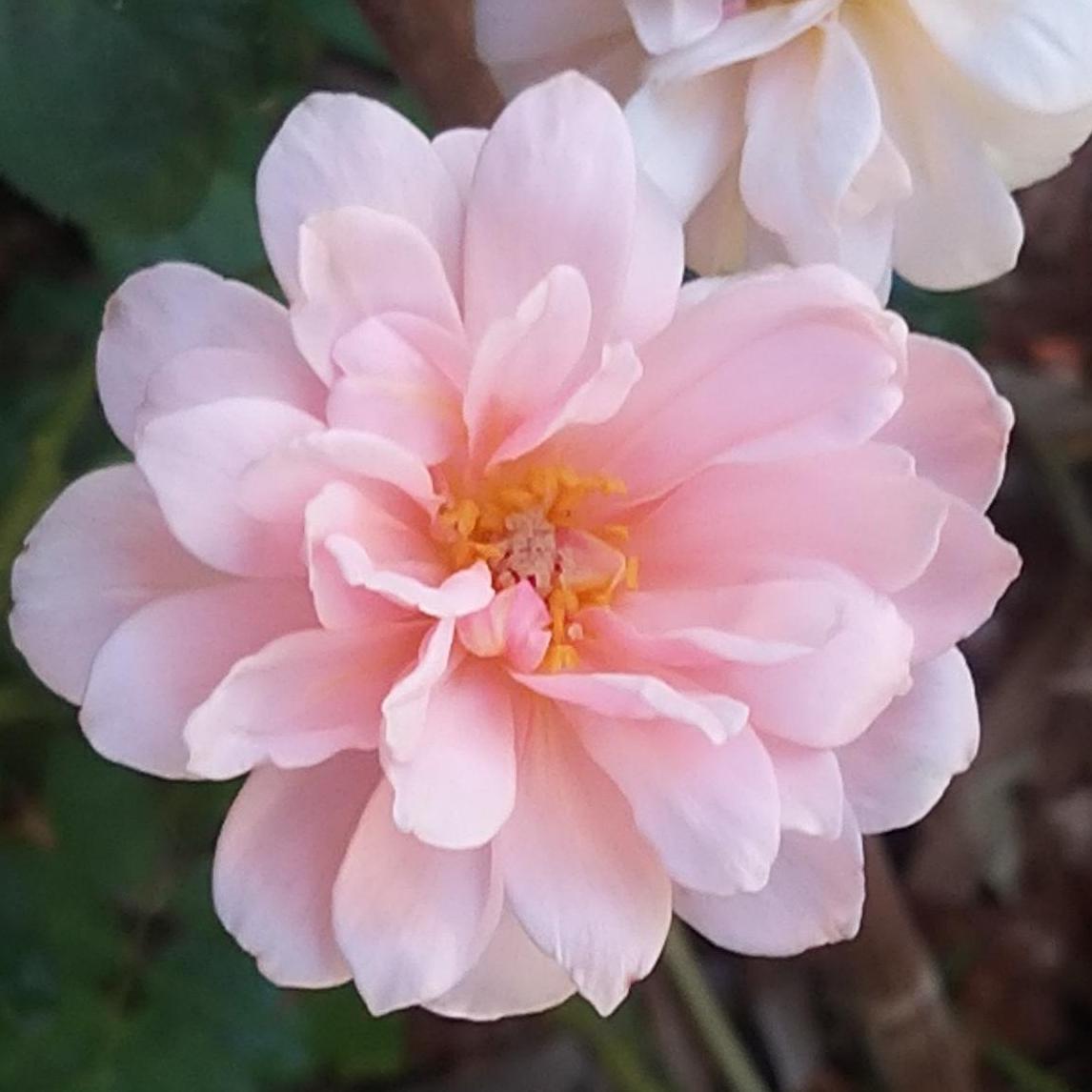
Thierry P.

Flowering from June - image 05 - In a pair.
Thierry P. • 84 FR
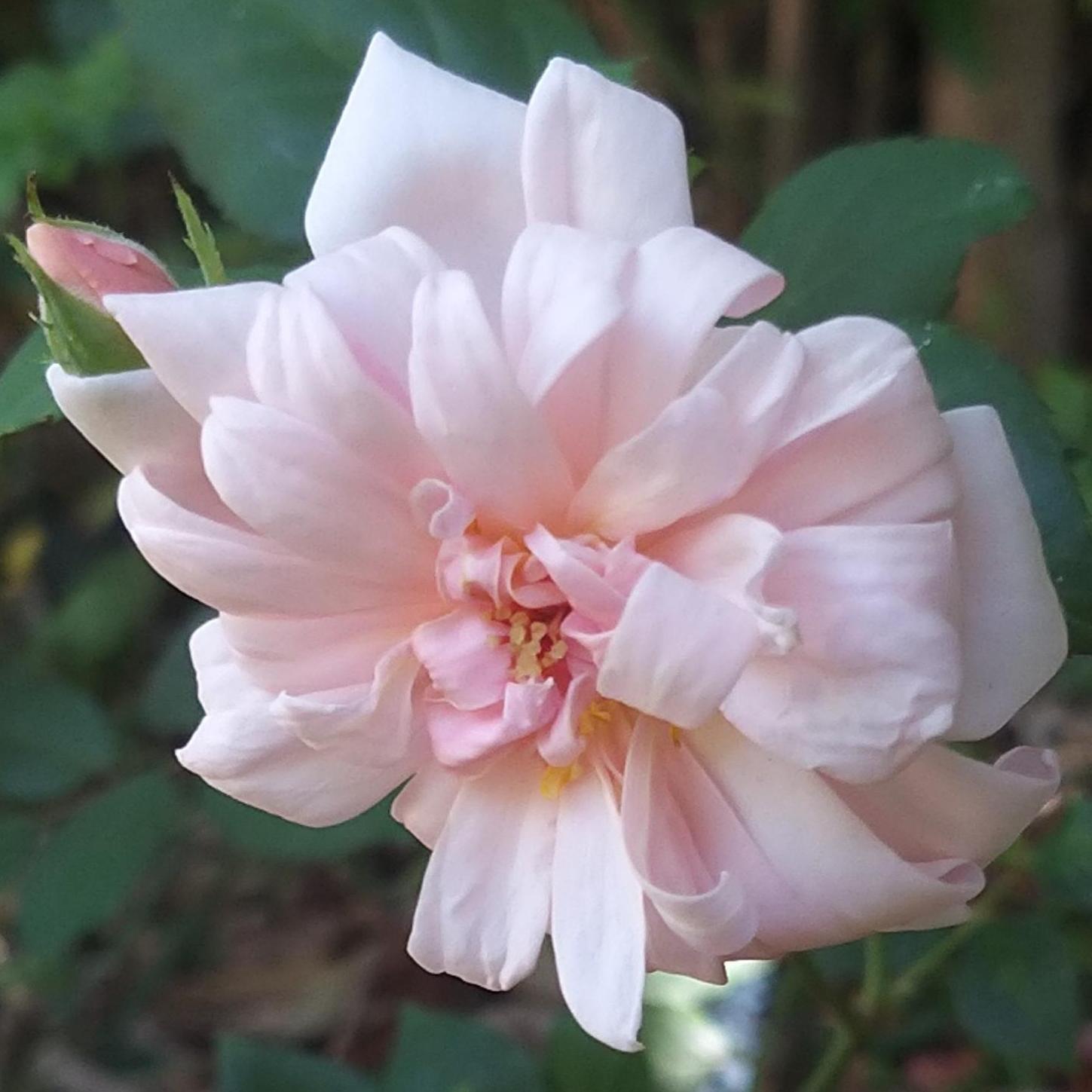
Thierry P.

July Flowering - image 06 - Flower & bud.
Thierry P. • 84 FR
'Perle d'Or' - Old Rose
Rosa x polyantha Perle d'or
Polyantha Rose
I have just received my rose bush that I was eagerly awaiting, delivered on the scheduled date but what a disappointment! The rose bush arrived with leaves full of black spots. Promesse de fleurs has accustomed me to quality for many years, and today it is not the case. I will not plant it with my other rose bushes that may risk being contaminated.
Michèle, 26/09/2024
Special offer!
Receive a €20 voucher for any order over €90 (excluding delivery costs, credit notes, and plastic-free options)!
1- Add your favorite plants to your cart.
2- Once you have reached €90, confirm your order (you can even choose the delivery date!).
3- As soon as your order is shipped, you will receive an email containing your voucher code, valid for 3 months (90 days).
Your voucher is unique and can only be used once, for any order with a minimum value of €20, excluding delivery costs.
Can be combined with other current offers, non-divisible and non-refundable.
Home or relay delivery (depending on size and destination)
Schedule delivery date,
and select date in basket
This plant carries a 6 months recovery warranty
More information
We guarantee the quality of our plants for a full growing cycle, and will replace at our expense any plant that fails to recover under normal climatic and planting conditions.

Description
The rose bush 'Perle d'Or' is an old Lyon creation by Rambaux, still highly regarded for its extraordinary flowering. It is a hybrid of polyantha and tea rose, repeat flowering, which produces numerous miniature, double roses, well-held, in shades of apricot, fawn and pink cream, countless. Its compact habit, graceful branches and long flowering period form an extremely refined subject to showcase. Resistant to rose diseases, its only weakness is hardiness, which can be lacking in cold climates. It will work wonders in a large pot on the terrace or balcony, even in full sun. It performs excellently in Mediterranean regions.
The 'Perle d'Or' flowers, gathered in clusters, come from the Polyantha rose, an old hybrid derived from Rosa multiflora and the China rose R. chinensis. 'Perle d'Or' is given as a synonym of 'Yellow Cecile Brunner' due to a certain resemblance (except for the colour). Some sources consider it a dwarf form of Rosa multiflora x 'Mme Falcot'. It is a creation by Joseph Rambaux dating back to 1875, introduced by Francis Dubreuil in 1884. This rose is very popular in the United States and is often planted in Texas or California. In France, it is commonly found in gardens on the French Riviera.
This 'Perle d'Or' rose has a flexible and graceful bushy habit, as wide as it is tall, supported by slender branches with few thorns, but well-branched. It will reach an average height and spread of 70 cm in a few years. The bush is more vigorous in hot climates and can easily reach or exceed 1 m in all directions. According to some sources, the plant can reach a height of 1.80 m. Its young stems are purple to reddish, just like its young leaves. The foliage is divided into dark green satin leaflets that are not very susceptible to diseases. This variety blooms continuously between May, June, and October if the soil does not dry out too much in summer. The flowers measure 4 cm wide and comprise 26 to 40 petals. Their shape is slightly tousled when fully open. Their colour ranges from orange-fawn in buds to salmon-apricot tinged with pink cream at the centre. The petals fade almost to white. They have a light, fruity fragrance. These miniature roses are gathered in clusters of 5 to 25 flowers. After pollination, small ovoid fruits form and turn vermilion in autumn. The foliage is deciduous to semi-evergreen in winter, depending on the climate.
The 'Perle d'Or' rose adapts remarkably well to container cultivation, which allows it to be grown in all regions as long as it is protected from severe frost in winter. Its branches suffer damage below -10 °C; it is a rose with a very "Chinese" temperament that loves heat. In mild regions, it can be planted in groups of 3 plants, arranged in a triangle, or a large border along a path, or to highlight a shrub bed, for example. It will blend perfectly with light or opulent perennial beds such as hardy geraniums, catnips, bell flowers, and sage. Plant it in front of a bed composed of abelias, deutzias or mock oranges. It will happily overflow from a large pot on the terrace, balcony, or a flower-filled basin.
Report an error about the product description
'Perle d'Or' - Old Rose in pictures
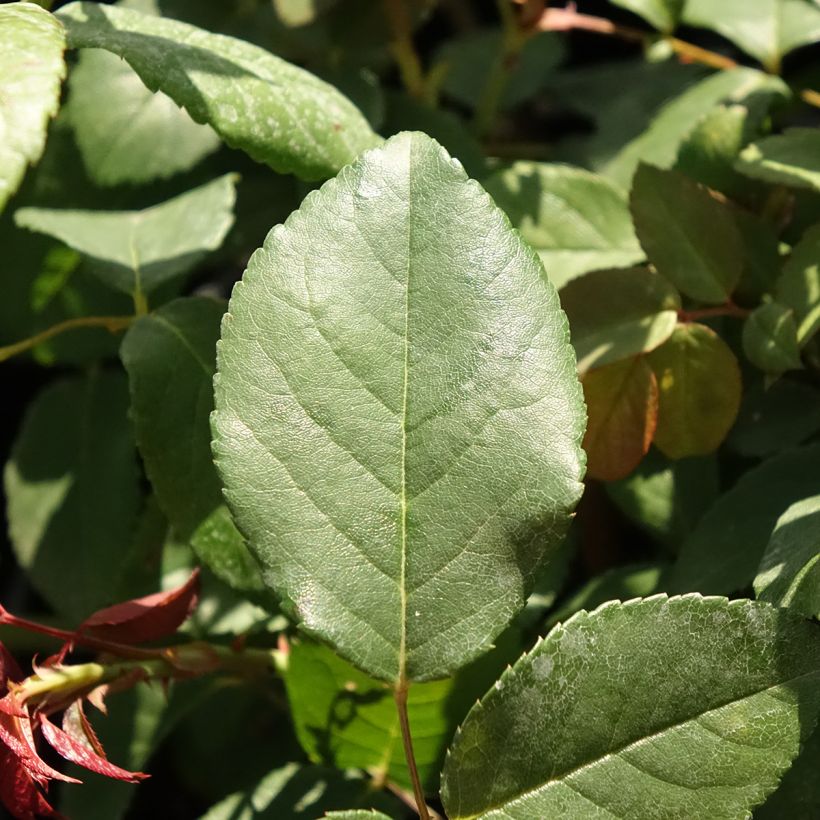

Plant habit
Flowering
Foliage
Botanical data
Rosa
x polyantha
Perle d'or
Rosaceae
Polyantha Rose
Cultivar or hybrid
Planting and care
Rose bushes thrive in a bright location that receives at least 4 to 5 hours of sunlight daily, but it's essential to shelter them from the harsh midday rays and strong winds. Loose, permeable and humus-rich soils are ideal for rose bushes, and they prefer slightly acidic soil but will adapt well if the soil is well-worked and sufficiently rich. To plant a rose bush in a pot, prepare the soil to a depth of 25 cm by breaking up the soil and adding a bottom amendment such as blood, fish and bone. After positioning the plant, please remove it from its pot, cover the top of the root ball with 3 cm of soil, fill the hole, and generously water it to eliminate any air pockets. Regular watering is necessary for a few weeks in dry weather to facilitate root growth. Remember to provide your rose bush with special rose fertiliser to encourage flowering.
This variety, 'Perle d'Or', is sensitive to severe frost (-10°C) and will thrive in a warm climate. It performs very well in a large pot with regular watering and fertilising. If necessary, it should be protected from extreme cold during winter.
Rose bushes may develop unsightly spots at the end of summer, but these are natural and do not harm the plant's growth.
Planting period
Intended location
Care
-
, onOrder confirmed
Reply from on Promesse de fleurs
Similar products
Haven't found what you were looking for?
Hardiness is the lowest winter temperature a plant can endure without suffering serious damage or even dying. However, hardiness is affected by location (a sheltered area, such as a patio), protection (winter cover) and soil type (hardiness is improved by well-drained soil).

Photo Sharing Terms & Conditions
In order to encourage gardeners to interact and share their experiences, Promesse de fleurs offers various media enabling content to be uploaded onto its Site - in particular via the ‘Photo sharing’ module.
The User agrees to refrain from:
- Posting any content that is illegal, prejudicial, insulting, racist, inciteful to hatred, revisionist, contrary to public decency, that infringes on privacy or on the privacy rights of third parties, in particular the publicity rights of persons and goods, intellectual property rights, or the right to privacy.
- Submitting content on behalf of a third party;
- Impersonate the identity of a third party and/or publish any personal information about a third party;
In general, the User undertakes to refrain from any unethical behaviour.
All Content (in particular text, comments, files, images, photos, videos, creative works, etc.), which may be subject to property or intellectual property rights, image or other private rights, shall remain the property of the User, subject to the limited rights granted by the terms of the licence granted by Promesse de fleurs as stated below. Users are at liberty to publish or not to publish such Content on the Site, notably via the ‘Photo Sharing’ facility, and accept that this Content shall be made public and freely accessible, notably on the Internet.
Users further acknowledge, undertake to have ,and guarantee that they hold all necessary rights and permissions to publish such material on the Site, in particular with regard to the legislation in force pertaining to any privacy, property, intellectual property, image, or contractual rights, or rights of any other nature. By publishing such Content on the Site, Users acknowledge accepting full liability as publishers of the Content within the meaning of the law, and grant Promesse de fleurs, free of charge, an inclusive, worldwide licence for the said Content for the entire duration of its publication, including all reproduction, representation, up/downloading, displaying, performing, transmission, and storage rights.
Users also grant permission for their name to be linked to the Content and accept that this link may not always be made available.
By engaging in posting material, Users consent to their Content becoming automatically accessible on the Internet, in particular on other sites and/or blogs and/or web pages of the Promesse de fleurs site, including in particular social pages and the Promesse de fleurs catalogue.
Users may secure the removal of entrusted content free of charge by issuing a simple request via our contact form.
The flowering period indicated on our website applies to countries and regions located in USDA zone 8 (France, the United Kingdom, Ireland, the Netherlands, etc.)
It will vary according to where you live:
- In zones 9 to 10 (Italy, Spain, Greece, etc.), flowering will occur about 2 to 4 weeks earlier.
- In zones 6 to 7 (Germany, Poland, Slovenia, and lower mountainous regions), flowering will be delayed by 2 to 3 weeks.
- In zone 5 (Central Europe, Scandinavia), blooming will be delayed by 3 to 5 weeks.
In temperate climates, pruning of spring-flowering shrubs (forsythia, spireas, etc.) should be done just after flowering.
Pruning of summer-flowering shrubs (Indian Lilac, Perovskia, etc.) can be done in winter or spring.
In cold regions as well as with frost-sensitive plants, avoid pruning too early when severe frosts may still occur.
The planting period indicated on our website applies to countries and regions located in USDA zone 8 (France, United Kingdom, Ireland, Netherlands).
It will vary according to where you live:
- In Mediterranean zones (Marseille, Madrid, Milan, etc.), autumn and winter are the best planting periods.
- In continental zones (Strasbourg, Munich, Vienna, etc.), delay planting by 2 to 3 weeks in spring and bring it forward by 2 to 4 weeks in autumn.
- In mountainous regions (the Alps, Pyrenees, Carpathians, etc.), it is best to plant in late spring (May-June) or late summer (August-September).
The harvesting period indicated on our website applies to countries and regions in USDA zone 8 (France, England, Ireland, the Netherlands).
In colder areas (Scandinavia, Poland, Austria...) fruit and vegetable harvests are likely to be delayed by 3-4 weeks.
In warmer areas (Italy, Spain, Greece, etc.), harvesting will probably take place earlier, depending on weather conditions.
The sowing periods indicated on our website apply to countries and regions within USDA Zone 8 (France, UK, Ireland, Netherlands).
In colder areas (Scandinavia, Poland, Austria...), delay any outdoor sowing by 3-4 weeks, or sow under glass.
In warmer climes (Italy, Spain, Greece, etc.), bring outdoor sowing forward by a few weeks.































